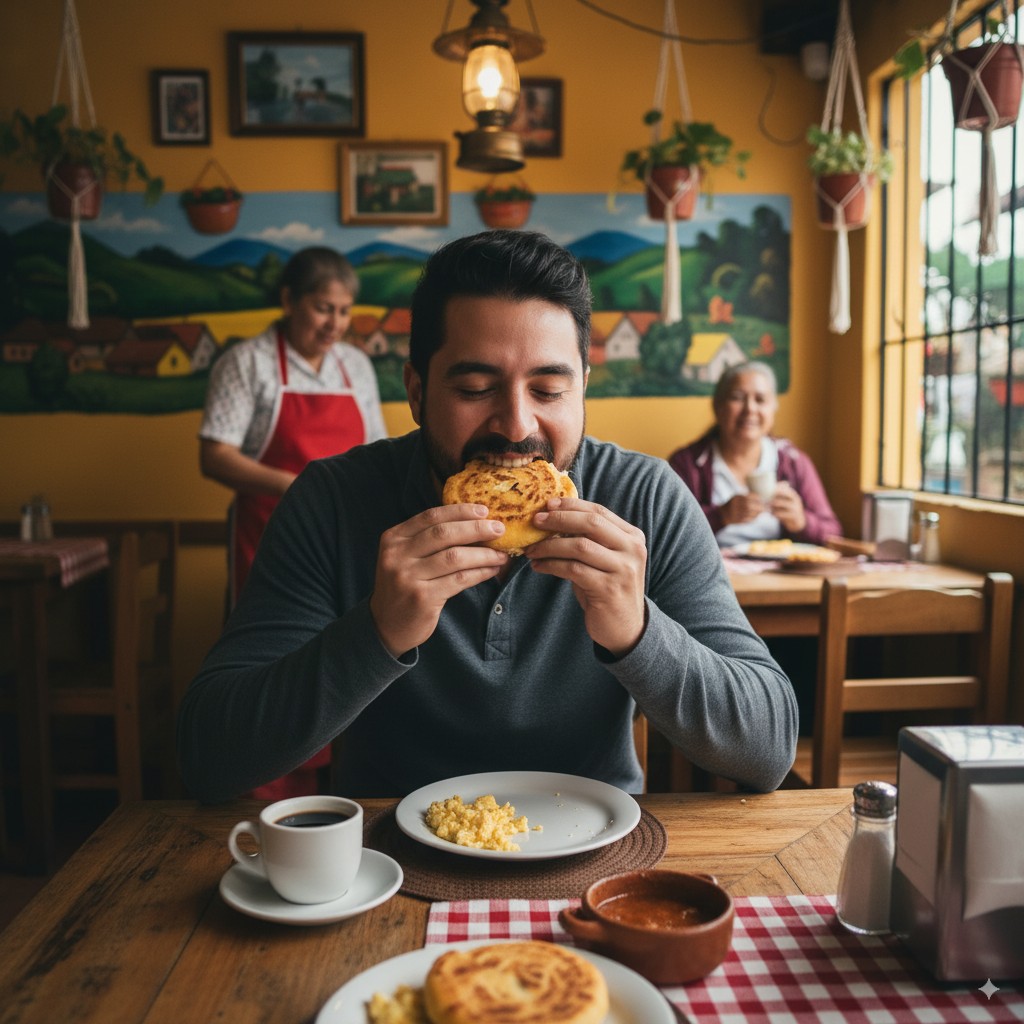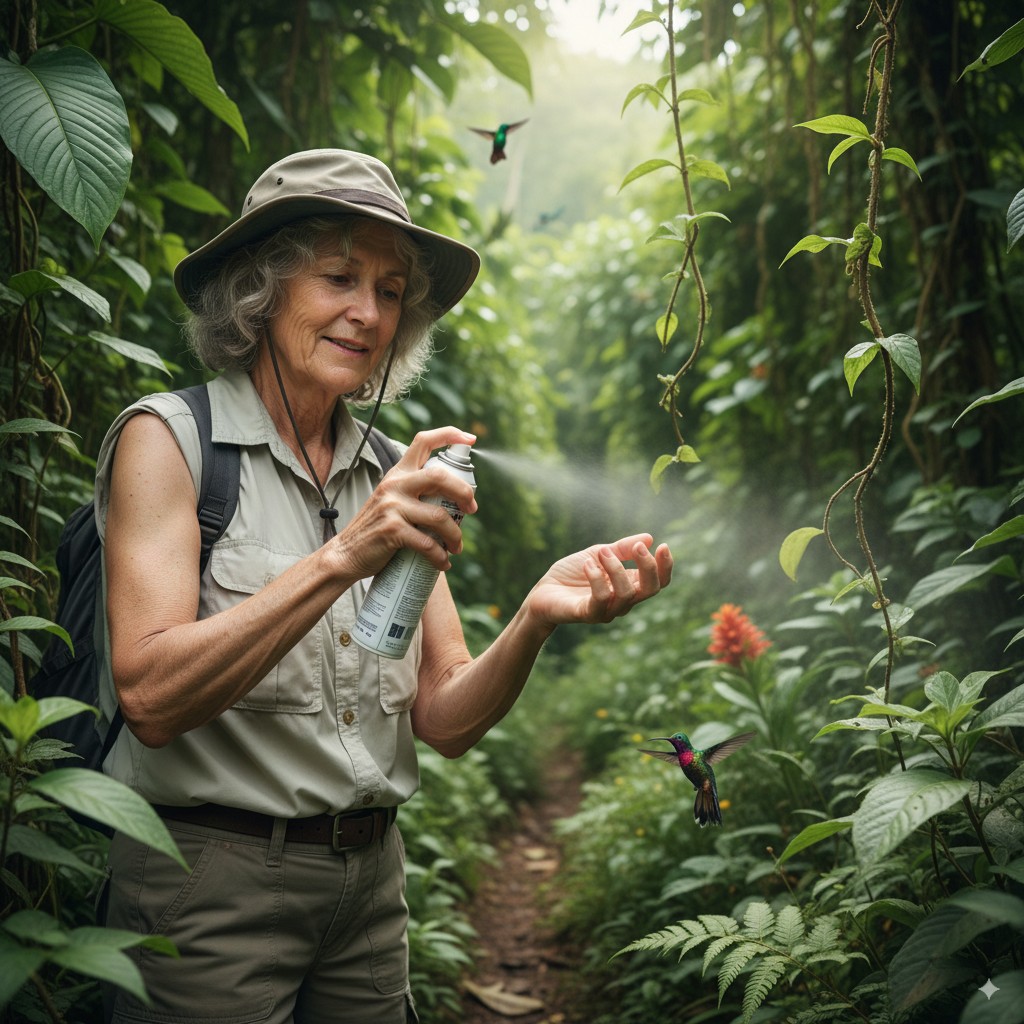September 15, 2025
 When you’re planning a trip to Colombia, it’s completely normal to have questions about health, vaccines, and staying safe. Maybe you’ve heard about yellow fever or malaria, or you’re wondering if it’s okay to drink the water in Bogotá. These are smart questions—and we’re here to help you answer them with clear, no-nonsense information.
When you’re planning a trip to Colombia, it’s completely normal to have questions about health, vaccines, and staying safe. Maybe you’ve heard about yellow fever or malaria, or you’re wondering if it’s okay to drink the water in Bogotá. These are smart questions—and we’re here to help you answer them with clear, no-nonsense information.
This guide is for travelers who want to enjoy Colombia’s vibrant cities, lush landscapes, and cultural richness without worrying unnecessarily. Whether you’re staying in Bogotá or venturing to more remote areas like the Amazon, we’ll break down what’s truly important for your peace of mind and well-being.
We’ll cover yellow fever, malaria, dengue, and food and water safety—keeping it focused on the most relevant facts so you can travel confidently, comfortably, and safely.
Understanding Vaccine Needs: Yellow Fever and the Amazon Region
If there’s one vaccine you’ll hear about in connection to Colombia, it’s yellow fever—and for good reason. It’s a mosquito-borne virus that still circulates in certain tropical parts of the country, mainly in jungle and lowland regions.
So, do you need the yellow fever vaccine?
It depends entirely on where you’re going.
If your trip is centered around Bogotá, Medellín, or Cartagena, the answer is no. These cities are not located in yellow fever risk zones, and vaccination is not required or recommended for travelers staying in urban or high-altitude areas.
However, if your plans include travel to the Amazon or other rural, tropical areas—such as:
- Amazonas Department (Leticia and nearby river areas)
- Guaviare
- Putumayo
- Parts of Meta, Caquetá, or the Orinoco region
…then the yellow fever vaccine is strongly recommended.
In fact, some tour operators or national parks in these regions may require proof of vaccination, and a few border countries (like Brazil or Ecuador) could ask for it if you’ve recently been in a Colombian yellow fever zone.
What to know about the vaccine:
- It’s a one-time shot that provides lifelong protection.
- It should be received at least 10 days before travel to be considered valid.
Side effects are usually mild, but if you have a weakened immune system or are over 60, talk to your doctor about whether it’s appropriate for you.
What about other vaccines?
There are no special vaccines required for urban Colombia. But it’s wise to make sure your routine vaccines are up to date:
- Tetanus
- Hepatitis A and B
- Measles, mumps, rubella (MMR)
- Influenza and COVID-19 (especially if traveling during flu season)
We recommend checking with a travel medicine clinic or your primary care provider at least 4–6 weeks before your trip.
Malaria Risk and Prevention: What You Need to Know
Malaria is another mosquito-borne illness that sometimes gets associated with Colombia—but let’s clarify who’s really at risk and what you need to do about it.
Where is malaria a concern?
- Amazon region (Leticia and surrounding jungle areas)
- Some coastal and rural lowland zones along the Pacific coast and in parts of the southeast
If you’re visiting Bogotá, Medellín, Cali, Cartagena, or any high-altitude city, you do NOT need malaria medication. These areas are not risk zones, and local transmission is virtually non-existent due to the altitude and climate.
Should you take antimalarial pills?
Only if you’re spending significant time in a malaria-prone rural area. In this case, a travel health provider might prescribe antimalarial medication (like Malarone or doxycycline) as a precaution.
General prevention tips (even in low-risk zones):
- Use mosquito repellent with DEET or picaridin.
- Wear long sleeves and pants, especially at dawn and dusk.
- Sleep with a mosquito net if you’re in an open-air lodge or jungle area.
- Keep windows and doors screened or closed.
It’s also helpful to understand how malaria differs from other mosquito-borne illnesses. Malaria is transmitted by night-biting mosquitoes, while diseases like dengue or Zika are spread by day-biting mosquitoes. This distinction matters when you’re choosing when and how to protect yourself.
Dengue Fever and Other Mosquito-Borne Illnesses: Staying Safe in Urban Areas
Dengue fever is more common than malaria in most parts of Colombia, including urban areas like Cartagena, which are warm and humid year-round. However, it’s not typically a concern in Bogotá due to its cooler, high-altitude climate, which mosquitoes dislike.
There is no vaccine or medication for dengue prevention for travelers (unless you live in a country where the vaccine is available), so your best protection is avoiding bites.
How to protect yourself from dengue:
- Use mosquito repellent during the day, not just in the evening.
- Avoid areas with standing water, especially after heavy rain.
- Wear lightweight, long-sleeved clothing when outdoors.
- Stay in air-conditioned or screened accommodations.
Other viruses like Zika and chikungunya are also present in Colombia, especially in lowland areas—but rates are relatively low, and the same precautions apply. For pregnant travelers or those trying to conceive, consult with your doctor before traveling to areas with Zika history.
Again, Bogotá and highland cities have very low mosquito activity, which significantly reduces your risk of all these illnesses.
Water Safety and Food Hygiene: What to Expect and How to Protect Yourself
Let’s talk about one of the most common concerns for international travelers: “Can I drink the water?”
Drinking water:
- In Bogotá, Medellín, and most major cities, the tap water is treated and safe to drink.
- However, many travelers still prefer bottled water to avoid any chance of stomach discomfort due to different mineral content.
- In rural, coastal, or jungle areas, stick to bottled, boiled, or filtered water only.
Ice and beverages:
- In high-end restaurants and hotels, ice is usually made with purified water.
- In casual or rural settings, it’s safer to avoid ice if you’re not sure about the source.
 Eating safely:
Eating safely:
Colombia is known for fresh tropical fruits, street snacks, and flavorful meals—and we think you should enjoy them. Just follow some basic hygiene tips:
- Wash hands often or carry hand sanitizer.
- Eat at busy, clean-looking food stalls or restaurants.
- Choose cooked foods over raw, especially meats and seafood.
- Peel fruits yourself or wash them thoroughly.
To prevent traveler’s diarrhea:
- Stay hydrated with clean water and electrolyte solutions.
- If needed, bring a few Imodium or oral rehydration packets just in case.
With just a little attention to hygiene, you can safely enjoy the incredible food culture here—and not miss out on the arepas, tropical juices, and empanadas.
Have a Healthy, Safe Trip with Planning Help from Cielo Travel
Traveling to Colombia doesn’t require a long list of medical precautions—just a little smart planning. And the team of local experts at Cielo Travel is here to guide you (and not just on avoiding health concerns).
Let us show you the wonders of Colombia, guiding you toward the best accommodations, food, and tours. Focus on the excitement, beauty, and richness of this incredible country—without the worry.
Meet the Team
We’re creators, marketers, and explorers — united by our love for Colombia and passion for storytelling. From content creators and strategists to social media experts and tour managers, we bring your journey — or your brand — to life.
CEO & Founder
Shawn Christopher Leamon
Read More
Social Media Director
Daniel Cardenas
Read More
Operations
Camilo Ceballos
Read More
Graphic Designer
Juan Sierra
Read More
Sales Manager
Juliana Gama
Read More
Social Media Specialist
Dayana Parra
Read More
Sales
Fabian Briñez
Read More
Sales
Johanna Vargas
Read More
Content & Multimedia Strategist
Diana Bustos
Read More
Visual Content Creator
Gabriela Munoz
Read More
Marketing Tours & Content Manager
Sergio Gonzalez
Read More
Storytelling Specialist
Brian Nino
Read More
Finance & Strategy Lead
Fernando Soto
Read More
Community Manager
Paula Rodríguez
Read More
Technology
David Álvarez
Read More
CEO & Founder
Shawn Christopher Leamon
Read More
Social Media Director
Daniel Cardenas
Read More
Operations
Camilo Ceballos
Read More
Graphic Designer
Juan Sierra
Read More
Sales Manager
Juliana Gama
Read More
Social Media Specialist
Dayana Parra
Read More
Sales
Fabian Briñez
Read More
Sales
Johanna Vargas
Read More
Content & Multimedia Strategist
Diana Bustos
Read More
Visual Content Creator
Gabriela Munoz
Read More
Marketing Tours & Content Manager
Sergio Gonzalez
Read More
Storytelling Specialist
Brian Nino
Read More
Finance & Strategy Lead
Fernando Soto
Read More
Community Manager
Paula Rodríguez
Read More
Technology
David Álvarez
Read More

 Eating safely:
Eating safely: